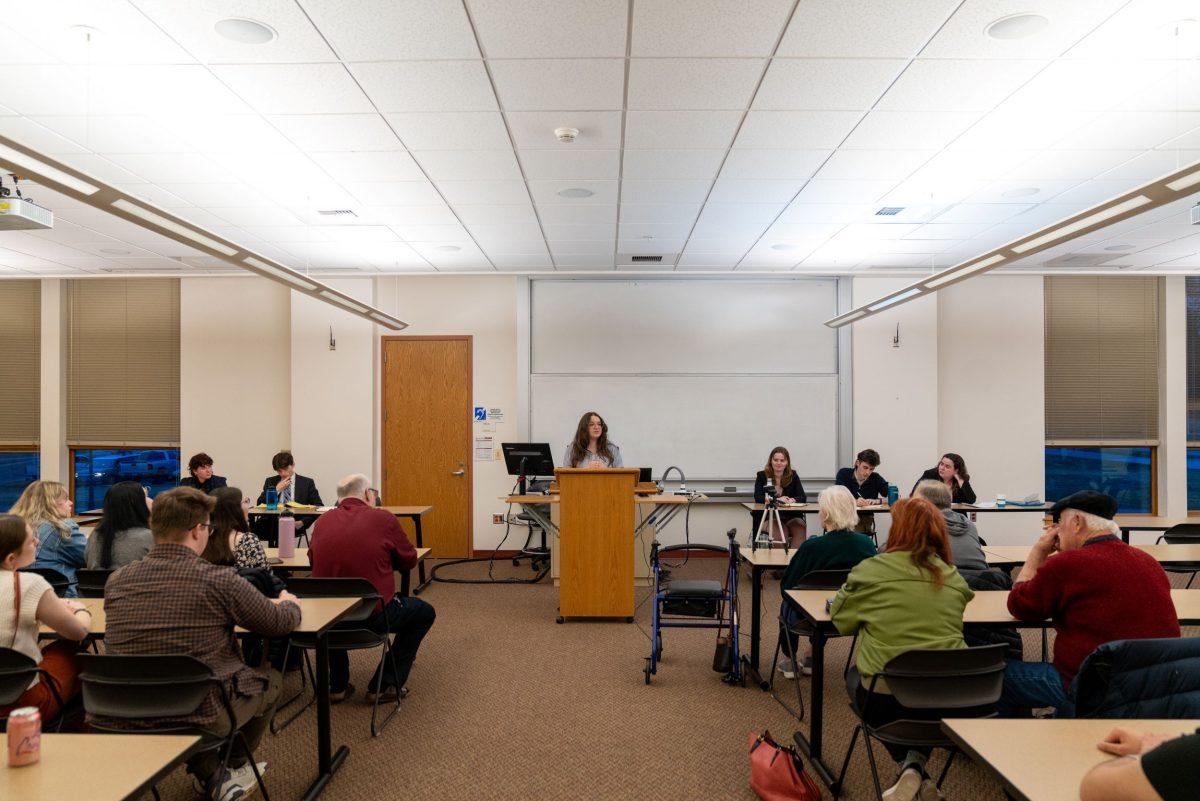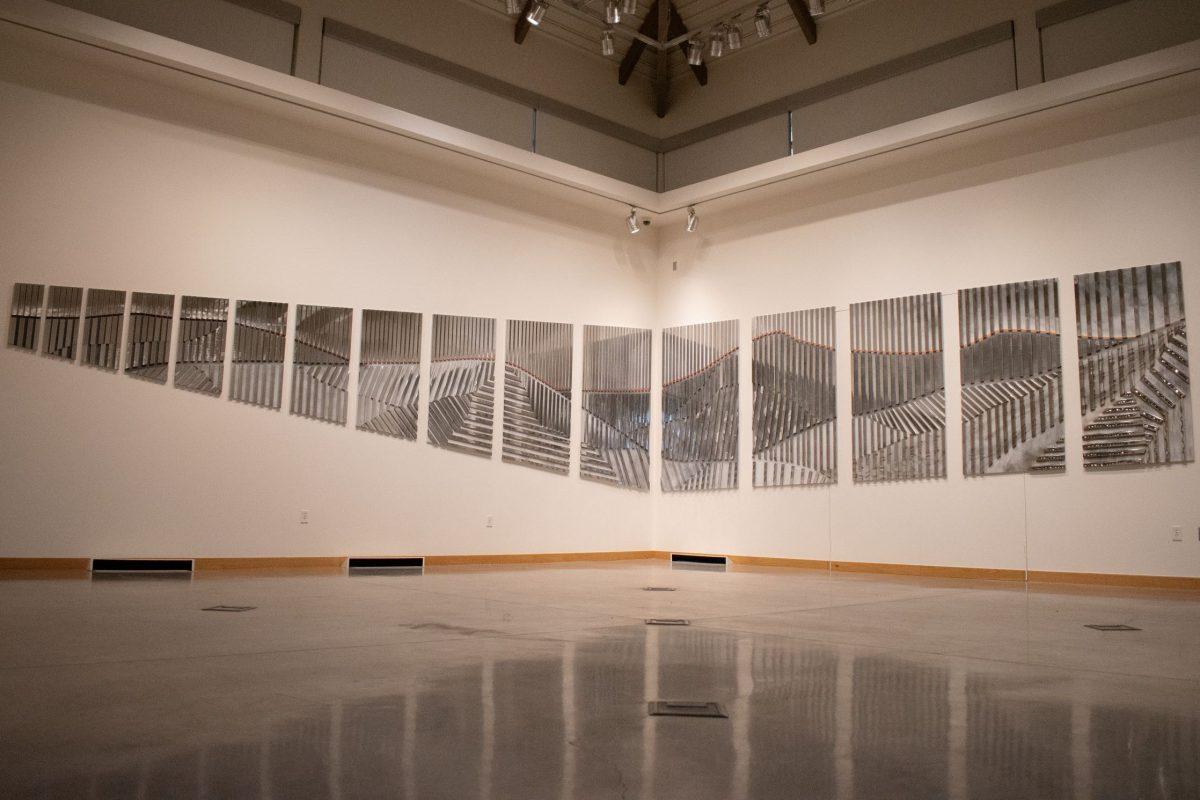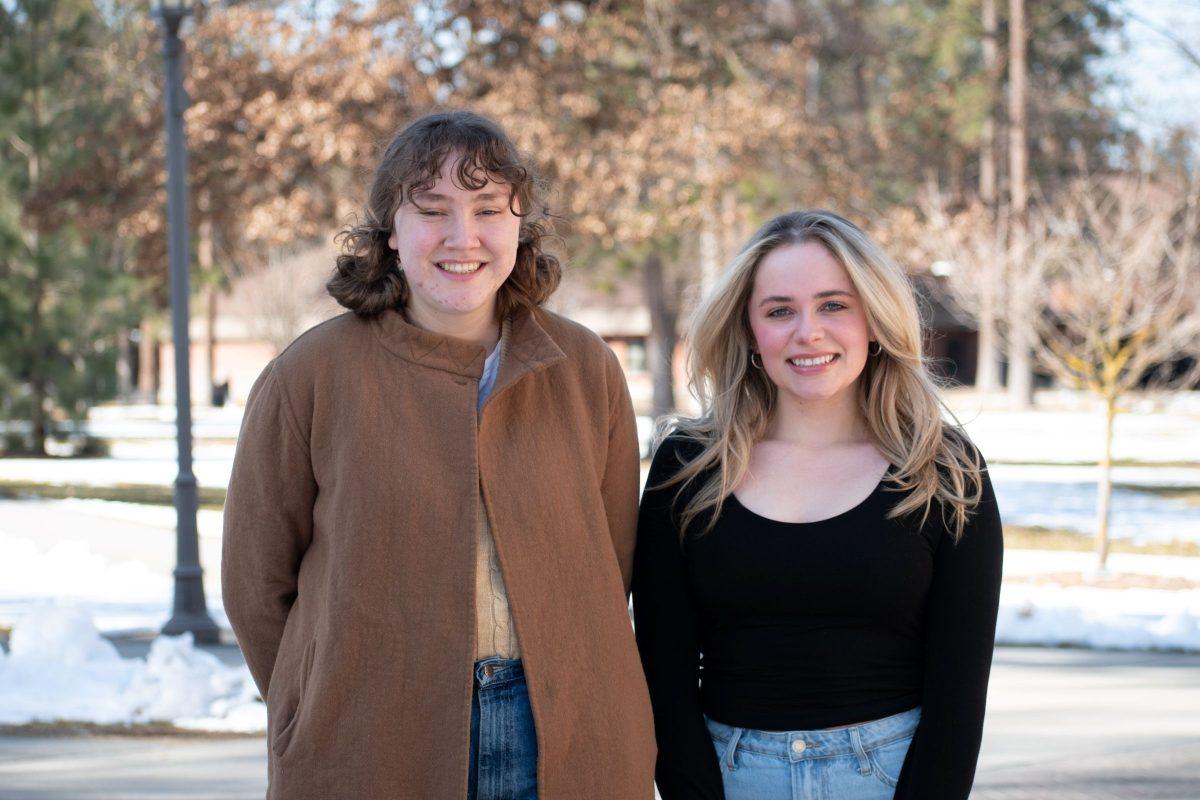by Jo Miller
Arts & Culture Editor
 Spokane’s Northwest Museum of Arts & Culture opened a new exhibition about soil from the Smithsonian National Museum of Natural History in Washington D.C. on Feb. 4. One display features everyday items, like medicines and house flooring, and explains their simple connection to soil.
Spokane’s Northwest Museum of Arts & Culture opened a new exhibition about soil from the Smithsonian National Museum of Natural History in Washington D.C. on Feb. 4. One display features everyday items, like medicines and house flooring, and explains their simple connection to soil.
The Northwest Museum of Arts and Culture’s (MAC) new exhibition takes visitors underground to explore the world of soil. The exhibit is wholly dedicated to showing why the skin of our earth is so important.
The exhibit, called Dig It: The Secrets of Soil, opened to the public at the MAC on Saturday, Feb. 4. The opening day event included art activities for kids, a music performance from Dead Fiddlers Society, and a panel discussion about soil and sustainability.
Dig It was brought to the MAC from the Smithsonian Institution National Museum of Natural History. The exhibit was well-received in Washington D.C. and went to one venue before coming to Spokane, said the exhibition’s curator, Dr. Patrick Megonigal of the Smithsonian Environmental Research Center.
The exhibit is a reminder that the soil is alive and sustains life on earth.
“A teaspoon of good farm soil contains up to 1 billion bacteria in more than 4,000 species,” one display reads.
Even though one lit up photograph informs visitors that the megascolides australis, an earthworm from Australia, can grow to lengths of 8 feet, visitors who don’t want to think about the creepy crawlies will find much more to look at.
One display lines the walls with panels of All-American soils, showing slices of soil from each state.
Mike Smith, a visitor to the exhibit and current professor at the University of Wyoming, stood in front of the panel of his home state and described Wyoming’s relatively dry soil that sustains a mixture of grasses and shrubs.
Smith used to teach classes on soil and said there are many job opportunities in soil.
“If you were to like soil, I can almost guarantee you a job,” Smith said.
He said there is trouble filling positions in that field because not many people think soil is interesting.
Another visitor, Michelle Hinton, said she thinks soil is fascinating and her favorite part of the Dig It exhibit was learning about what the microbes in the soil do.
“I love composting, so this has been interesting for me,” Hinton said.
Other displays in the exhibition are a reminder of people’s everyday connection to soil. Signs explain how ordinary items are just a few steps removed from soil. One says antibiotic medicines are made from microorganisms in soil, showing how people interact with soil every day without realizing it.
“We’ve pretty much always taken our soils for granted,” said Dr. Kevin Sullivan, Washington State soil scientist, at the panel discussion.
Dr. Ann C. Kennedy, soil scientist and Washington State University Adjunct, and other professionals discussed the value of caring for the soil we walk on every day.
Kennedy demonstrated that there is not that much soil on the earth; it’s only a small sliver like a thin slice of an apple peel.
There are concerns with soil health. For example, the organic matter in soil, the foundation of soil health, is declining, but it can increase using careful tillage technique.
We can feed the world and sustain the environment if we keep the soil healthy, Kennedy said.
But the cause lacks public interest and that’s why she said the exhibit is important.
“Soils feed the world and they will continue to do that,” Kennedy said.
Lynn Bahrych of the Washington State Conservation Commission spoke of the treasure trove of soils that exist in Washington.
“Some of the best soils are here and they are our stewardship responsibility,” Bahrych said.
Contact Jo Miller at [email protected]






